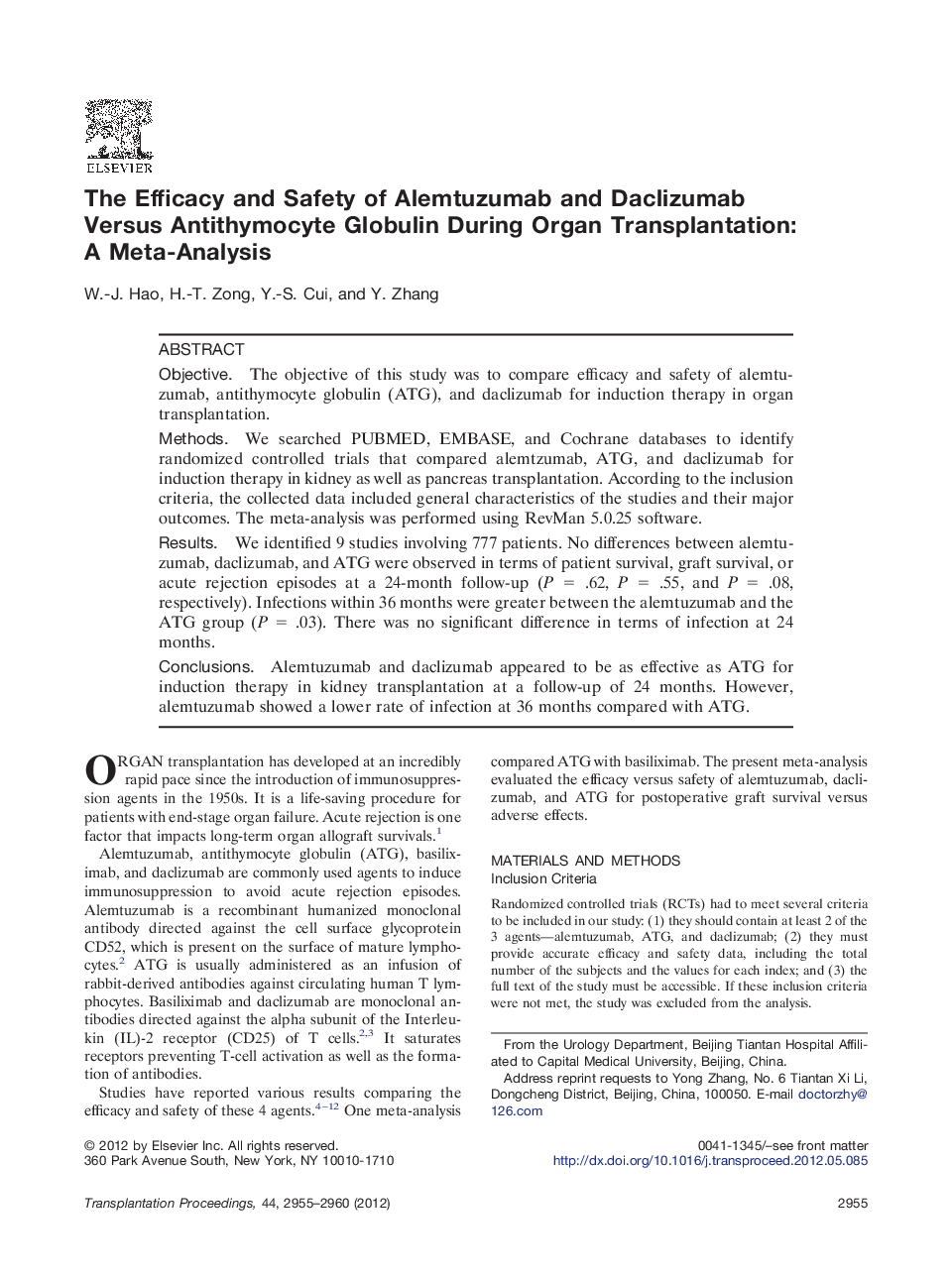| Article ID | Journal | Published Year | Pages | File Type |
|---|---|---|---|---|
| 4256214 | Transplantation Proceedings | 2012 | 6 Pages |
ObjectiveThe objective of this study was to compare efficacy and safety of alemtuzumab, antithymocyte globulin (ATG), and daclizumab for induction therapy in organ transplantation.MethodsWe searched PUBMED, EMBASE, and Cochrane databases to identify randomized controlled trials that compared alemtzumab, ATG, and daclizumab for induction therapy in kidney as well as pancreas transplantation. According to the inclusion criteria, the collected data included general characteristics of the studies and their major outcomes. The meta-analysis was performed using RevMan 5.0.25 software.ResultsWe identified 9 studies involving 777 patients. No differences between alemtuzumab, daclizumab, and ATG were observed in terms of patient survival, graft survival, or acute rejection episodes at a 24-month follow-up (P = .62, P = .55, and P = .08, respectively). Infections within 36 months were greater between the alemtuzumab and the ATG group (P = .03). There was no significant difference in terms of infection at 24 months.ConclusionsAlemtuzumab and daclizumab appeared to be as effective as ATG for induction therapy in kidney transplantation at a follow-up of 24 months. However, alemtuzumab showed a lower rate of infection at 36 months compared with ATG.
